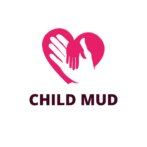In the wild, the art of hunting is passed down from generation to generation. This primal instinct, honed over millennia, has been key to survival. But how does it translate into modern parenting? Welcome to the intriguing world of “hunter parenting”.
Hunter parenting, a term that’s gaining traction, is all about fostering independence, resilience, and adaptability in children. It’s a refreshing take on the conventional parenting styles that often lean towards overprotection and micromanagement.
This article delves into the essence of hunter parenting, offering insights into its potential benefits and challenges. It’s a journey into a unique approach that could change how you view and practice parenting. Stay tuned for an enlightening exploration.
Hunter the Parenting
 Deciphering “hunter parenting’ allows us a closer view of its significant emphasis on self-reliance and adjustability in children’s upbringing, a stark contrast from traditional, often overly protective, parenting styles.
Deciphering “hunter parenting’ allows us a closer view of its significant emphasis on self-reliance and adjustability in children’s upbringing, a stark contrast from traditional, often overly protective, parenting styles.
Hunter parenting, a term coined most recently in the field of child-rearing, derives its basis from early human history. As its name suggests, it draws inspiration from the hunter-gatherer societies, where survival and success hinged on resourcefulness, adaptability, and resilience. Notably, it moves away from traditional parenting methods that often involve much supervision, planning, and control. Instead, hunter parenting promotes an environment where children can harness their inherent capabilities, learn through exploration, endure challenges, and cultivate resilience.
Core Principles of Hunter the Parenting
 A distinctive model, Hunter the Parenting School incorporates self-reliance, adaptability, and resilience as cornerstones of child development. Derived elements from ancient hunter-gatherer societies are the hallmarks of this approach. Let’s delve into the essentials.
A distinctive model, Hunter the Parenting School incorporates self-reliance, adaptability, and resilience as cornerstones of child development. Derived elements from ancient hunter-gatherer societies are the hallmarks of this approach. Let’s delve into the essentials.
Predominantly, under the Hunter the Parenting model, nature plays an integral role, used as a tool for imparting practical skills and fostering growth. This approach promotes regular outdoor activities, encouraging children to engage with nature in all its myriad forms. These activities range from hiking and camping to identifying native flora and fauna. In this way, the school believes that interacting with nature not only enhances physical health but also instills an understanding and respect for the environment. It’s an extended classroom without walls, where children learn through direct interaction and exploration.
Hunter style parenting, markedly, accentuates independence and self-sufficiency. From a young age, children learn to perform various tasks independently, whether it’s cooking a simple meal or fixing a broken toy.
Benefits of Hunter the Parenting
 Hunter the parenting unlocks numerous benefits, ranging from physical health advancements to the cultivation of emotional and psychological resilience in children. These benefits stem from the underlying principles that instigate independent learning, promote resilience and a deep-seated respect for nature.
Hunter the parenting unlocks numerous benefits, ranging from physical health advancements to the cultivation of emotional and psychological resilience in children. These benefits stem from the underlying principles that instigate independent learning, promote resilience and a deep-seated respect for nature.
Embedded within Hunter the parenting’s ideology, physical activity plays a pivotal role. Engaging in nature-based activities such as climbing trees, running in the park, and crafting objects from natural elements not only strengthens physical health but also instils a deep-sourced appreciation for the natural environment. In a study published in the International Journal of Environmental Research and Public Health[^1^], children engaged in regular physical activity showed improved cardiorespiratory fitness, reduced risk of obesity, and better overall health. Thus, Hunter the parenting contributes to superior physical health, setting the foundation for a healthy future.
[^1^]: Huertas-Delgado, Francisco Javier, et al. “Extra-Curricular Participation in Sports and Socio-Demographic Factors in Spanish Children and Adolescents: The UP&DOWN Study.” International Journal of Environmental Research and Public Health, vol. 12, no. 12, 2015, pp. 7809-7819.
Emotional and Psychological Resilience
Hunter the parenting doesn’t just cater to physical wellness, it also extensively nurtures emotional and psychological resilience. This approach fosters an environment where failure is viewed as a growth opportunity, fostering resilience in kids. Furthermore, by encouraging children to learn tasks autonomously, this parenting style cultivates a sense of self-reliance and adaptability. These skills are crucial, enhancing the child’s emotional and psychological resilience, aiding them in dealing with life’s challenges. The Journal of Child Psychology and Psychiatry[^2^] suggests a strong correlation between childhood self-reliance and emotional health in adulthood, underscoring the significance of fostering self-reliance in children.

